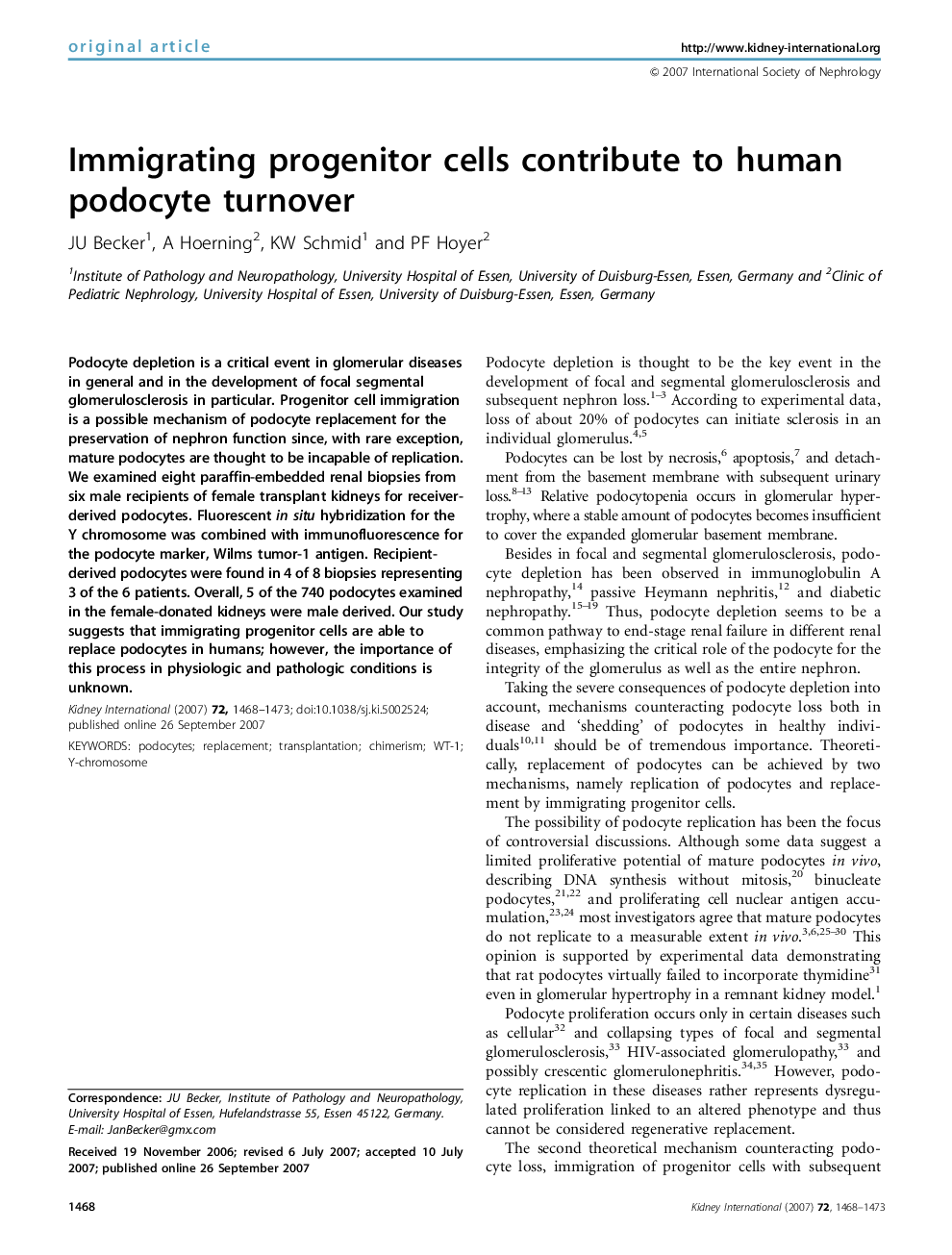| Article ID | Journal | Published Year | Pages | File Type |
|---|---|---|---|---|
| 3888867 | Kidney International | 2007 | 6 Pages |
Podocyte depletion is a critical event in glomerular diseases in general and in the development of focal segmental glomerulosclerosis in particular. Progenitor cell immigration is a possible mechanism of podocyte replacement for the preservation of nephron function since, with rare exception, mature podocytes are thought to be incapable of replication. We examined eight paraffin-embedded renal biopsies from six male recipients of female transplant kidneys for receiver-derived podocytes. Fluorescent in situ hybridization for the Y chromosome was combined with immunofluorescence for the podocyte marker, Wilms tumor-1 antigen. Recipient-derived podocytes were found in 4 of 8 biopsies representing 3 of the 6 patients. Overall, 5 of the 740 podocytes examined in the female-donated kidneys were male derived. Our study suggests that immigrating progenitor cells are able to replace podocytes in humans; however, the importance of this process in physiologic and pathologic conditions is unknown.
